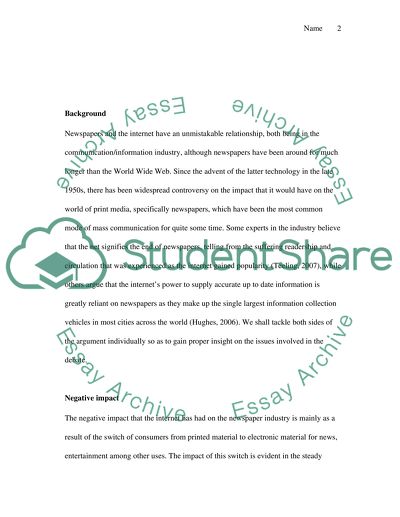Cite this document
(Survival of the Newspaper Industry Essay Example | Topics and Well Written Essays - 2250 words, n.d.)
Survival of the Newspaper Industry Essay Example | Topics and Well Written Essays - 2250 words. Retrieved from https://studentshare.org/media/1529719-newspaper-industry
Survival of the Newspaper Industry Essay Example | Topics and Well Written Essays - 2250 words. Retrieved from https://studentshare.org/media/1529719-newspaper-industry
(Survival of the Newspaper Industry Essay Example | Topics and Well Written Essays - 2250 Words)
Survival of the Newspaper Industry Essay Example | Topics and Well Written Essays - 2250 Words. https://studentshare.org/media/1529719-newspaper-industry.
Survival of the Newspaper Industry Essay Example | Topics and Well Written Essays - 2250 Words. https://studentshare.org/media/1529719-newspaper-industry.
“Survival of the Newspaper Industry Essay Example | Topics and Well Written Essays - 2250 Words”, n.d. https://studentshare.org/media/1529719-newspaper-industry.


